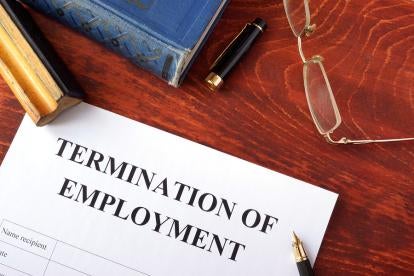An employer is entitled to dismiss an employee for misconduct without notice after conducting due inquiry. This right is provided for in S14(1) of the Singapore Employment Act. It is also commonly provided for in employment contracts or a company’s disciplinary procedure. But, what constitutes “due inquiry”? The Singapore High Court (HC) had to consider this question in Long Kim Wing v LTX-Credence Singapore Pte Ltd [2017] SGHC 151 (Long Kim Wing). In gist, the “due inquiry” requirement will likely be satisfied if an employer informs an employee of the allegations and evidence against them so that the employee has an opportunity to defend them self in a formal process.
In Long Kim Wing, the plaintiff, Long Kim Wing (Long), was dismissed from employment by the defendant, LTX-Credence Singapore Pte. Ltd. (LTX-Credence), for alleged misconduct, namely, for intending to deceive his employer by means of a forged offer letter pertaining to the employment of another employee as well as Long’s failure to obtain approval from his supervisor prior to making unauthorized advance payments to the aforesaid employee. Long then commenced proceedings against LTX-Credence for wrongful dismissal. One of his heads of claim was for two months’ salary as a result of LTX-Credence’s failure to conduct due inquiry before dismissing him, which according to Long, would have taken at least two months. This claim was made in reliance upon Clause 5(1) of LTX-Credence’s General Service Terms (GST) which states:
“The Company may after due inquiry dismiss without notice an employee on the grounds of misconduct inconsistent with the fulfilment of the express or implied conditions of his/her service.”
The Importance of Procedural Fairness
In its grounds of decision, the HC extensively considered the evidence and found that Long was indeed guilty of misconduct which justified his dismissal in the circumstances. However, the HC also held that LTX-Credence’s inquiries and investigations did not amount to due inquiry for the purpose of Clause 5(1) of the GST. The HC found that no formal process was undertaken and that LTX-Credence had not clearly put the allegations of misconduct to Long. The HC subsequently held that Long would only be entitled to payment of his salary for seven days as it felt that LTX-Credence would not have required more than seven days to complete the inquiry.
Employers should therefore consider adopting the following guidelines when conducting due inquiry before dismissing an employee for misconduct:
- While due inquiry does not mandate a formal procedure to be undertaken, the less formal the process, the greater the danger that due inquiry would not be deemed to have been undertaken. In this regard, an employer would be well advised to keep contemporaneous written records documenting the process of due inquiry.
- The employer must clearly inform an employee of the allegations and evidence against them so that the employee has an opportunity to present their case and defend the allegations. Although not strictly necessary, it may be, as a matter of prudence, sensible to also allow the employee to present arguments in mitigation of the alleged misconduct.
Adherence to the above guidelines by an employer will help reduce the risk of an allegation by an employee that due inquiry was not carried out.




 i
i


